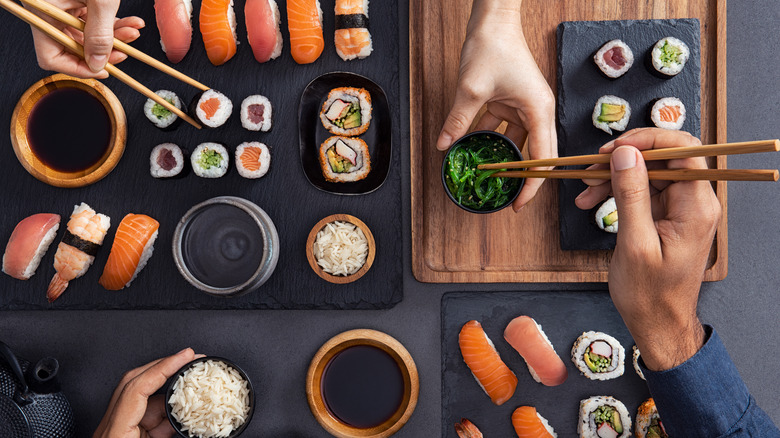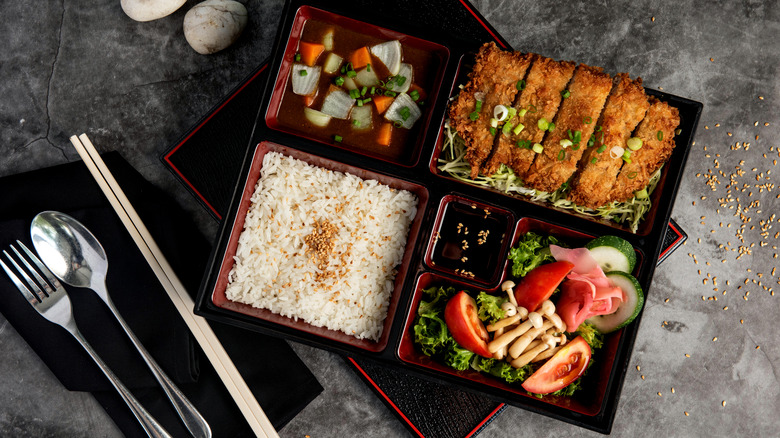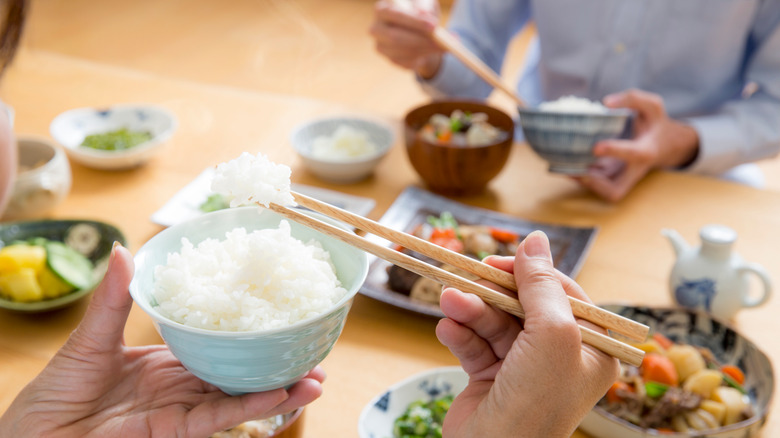Everything You Need To Know About The Shokuiku Food Philosophy
Unlike so many diets, which tend to restrict social connection (who wants to eat sprouts while everyone else is gorging on pizza?), shokuiku is a Japanese philosophy that places importance on enjoying food with others, explains Healthline. The outlet notes that shokuiku means food education in Japanese, and has been the foundation of school nutrition programs since the government passed a law in 2005. Along with their standard education, Japanese students are learning about food, but in a significantly different manner than nutrition science classes in the West.
Japanese cuisine is known for its light preparations, seafood, rice, and a variety of flavorful combinations, according to Nippon.com. However, the website notes that with the Westernization of Japanese culture and eating habits, the country has seen an influx in diet-related illnesses in the past few decades. It was in this context that the Ministry of Agriculture, Forestry and Fisheries (MAFF) stepped in to implement a program to equip the population to make positive choices regarding food.
Shokuiku is all about developing healthy habits around food
While some people might be indignant at the thought of the government creating laws around food habits, the goal was not to put the entire population on a diet. Rather, the purpose of shokuiku is about developing a healthy perspective related to food and lifestyle choices that benefit physical and mental well-being, as well as local food markets and traditions (via MAFF). As Cultural Atlas notes, Japan is a collectivistic culture that supports harmony within its population. In this context, it seems valuable to incorporate food education since food is a unifying factor among people, and can also be the source of many health issues.
Thankfully, shokuiku doesn't entail counting calories or other especially quantifiable methods of assessment. Instead, Healthline explains that it is more about finding balance in food choices and using one's intuition to make appropriate decisions that nourish the body and mind. As well, school programs teach about food labels, seasonal eating, production, cooking, and how your nutritional needs change throughout your lifetime (via Healthline).
What are the principles?
In this vein, Healthline notes that the four main elements of shokuiku are to listen to signals of fullness, focus on whole foods, seek variety, and share your meals with others. Fullness does not mean to eat until you're stuffed — rather it's following the practice of hara hachi bun me, which means eating until you're roughly 80 percent satiated to avoid excess. This way of tracking how much you eat is praised, according to Unseen Japan.
Healthline also notes that whole foods are favored over processed foods since these have more nutrients to sustain the body. Similarly, seeking a variety of foods prepared in a multitude of ways to appeal to all the senses helps keep the mind stimulated and the body nourished (via Shape). Eating is encouraged as a social activity where everyone mindfully consumes and enjoys their food together, according to Healthline.
As a whole, shokuiku is not meant as a weight loss program, but the philosophy can result in similar effects since it promotes sustainable holistic well-being. We'll take that over calorie-counting any day!


